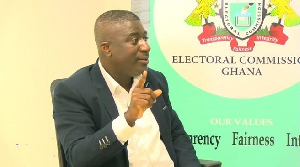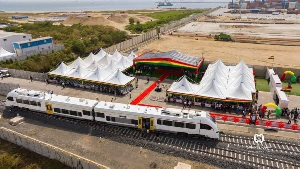Effective September 1, 2023, the National Petroleum Authority (NPA) will begin the full implementation of the Zonalization Policy for the primary supply of Gasoline (Petrol) and Gasoil (Diesel) products across fuel station outlets and various demand centers in the country.
These two major products constitute over 70% of the country's entire product mix. While the policy aims to streamline fuel distribution, it raises serious concerns about the infrastructural readiness to support such a monumental operational shift in the petroleum downstream sector.
This piece focuses on the Kumasi Depot, which is slated to serve the Ashanti, Bono, Ahafo, Bono East, and the Western North Regions of Ghana. I will discuss the depot's capabilities and the anticipated challenges that could make or break the policy's success.
The Kumasi Depot: A case for concern
The Kumasi Depot, with a total storage capacity of 87,000 cubic meters, accounts for just 5.6% of the national supply and holding capacity. This is alarmingly low when compared with Tema which has a holding capacity of over 1.2 million cubic meters, and considering that the Kumasi depot is expected to serve regions with high population density and significant industrial activities, including mining.
The Kumasi depot's loading gantry has only three racks, capable of loading a mere six trucks at a time and a paltry average of about 100 trucks in a day. In stark contrast, the combined capacity of depots across the Tema enclave can load 1000 trucks daily, thanks to its state-of-the-art infrastructure including high-speed pumps and vast storage tanks.
The anticipated challenges
The Zonalization Policy poses significant risks to both the downstream industry and the general public.
The policy's mandate for Bulk Distribution Companies (BDCs) to store exclusively with BOST for supplies outside the Tema enclave threatens to stifle industry competition and gives an unfair advantage to state-backed PSPs like Goil and Go Energy.
This bias will extend to the potential skewness of storage access towards these parastatal agencies, putting private-sector BDCs and Tank Farms at a disadvantage.
Furthermore, the Kumasi Depot is ill-equipped to handle the surge in demand following the policy’s full implementation which raises serious concerns about operational backlogs when OMCs raise loading orders. The inability of the depot to effectively load incoming orders during any operational day can lead to potential corruption where OMCs and BRV drivers may have to pay bribes before their orders are served.
Additionally, the policy could erode the market share of the ever-proliferating private tank farm business in Tema, leading to job losses. These challenges collectively undermine the policy's intent and could have far-reaching implications for the industry's competitiveness and efficiency.
Recommendations
To ensure the success of the Zonalization Policy, several critical measures must be undertaken by the NPA before embarking on full implementation.
Refocusing BOST's core mandates: Bulk Oil Storage and Transportation Company Limited (BOST) has a dual mandate that is critical for Ghana's energy security.
First, it must provide the necessary infrastructure for the efficient and cost-effective distribution of petroleum products across the country.
Second, it must maintain strategic reserves to ensure energy security.
However, BOST's current engagement in the Bulk Distribution Company (BDC) business poses a conflict of interest and threatens the competitive landscape of the downstream petroleum market.
Regulatory oversight is essential here. The National Petroleum Authority (NPA) must be empowered to enforce a clear separation between BOST's infrastructure and reserve mandates and its business interests in distribution. This will ensure that BOST remains focused on its core responsibilities without compromising market competition.
Addressing operational inefficiencies at the Kumasi Depot: The Kumasi Depot is intended to serve multiple regions but currently acts as a bottleneck in the system. Its storage capacity accounts for only 5.6% of the national total, which is woefully inadequate given its strategic importance. To address this, a comprehensive infrastructure upgrade is non-negotiable. The existing storage capacity should at least be doubled to meet the expected surge in future
demand due to the policy.
Additionally, the current pumps should be replaced with high-speed capacity discharge and gantry loading pumps capable of delivering effective flow rates between 1200–2000 liters per minute, benchmarking depots in the Tema enclave. The Kumasi depot currently has 11 loading arms, with only three racks capable of loading six trucks at a time and an average of about 100 trucks daily as compared to Tema which can do 1000 trucks.
This is insufficient, especially considering the expected increase in demand that will be occasioned by the Zonalization Policy. Both the loading and pumping systems should be significantly improved to enhance overall operational efficiency.
Infrastructure investment in railway transportation: The central government (GOG) must collaborate with BOST to complete the railway line from Takoradi to Kumasi. The current system relies on Bulk Road Vehicles (BRVs) to transport petroleum products from Tema to Kumasi, a process that is both time-consuming and costly.
The two-stage transportation system of first transporting from Tema to Kumasi, discharging into tanks, and re-transporting to demand centers will put undue strain on the Uniform Petroleum Pricing Fund (UPPF), a public fund designed to equalize fuel prices across the country. The inefficiencies in this system also lead to product losses, which could have long-term financial implications for BOST.
A direct railway line from Takoradi to Kumasi would be a game-changer. It would not only be more cost-effective but also more efficient and safer. The Kumasi depot already has the infrastructure layout to handle railway-transported petroleum products. All that is needed is to extend the existing railway line
from Tarkwa to Kumasi, thereby providing a more efficient, cost-effective, and safer means of transportation.
Conclusion
While the Zonalization Policy aims to streamline primary fuel distribution across Ghana, its success hinges on the readiness and robustness of the infrastructure to support it. The Kumasi Depot, as it stands, is woefully inadequate to meet the demands of the regions it is supposed to serve.
It comes across as the weakest link to undermine the entire initiative. Unless significant upgrades are made, the policy is set up for failure, risking not just the energy sector but also the broader economic stability of the regions involved. It's high time the authorities re-evaluate the policy's feasibility and make the necessary adjustments to ensure its success.
Failure to do so could lead to a repeat of the chaos witnessed in 2016, where operational inefficiencies led to market distortions and serious kickback
corruption at the depots, a scenario that Ghana can ill afford.
Click here to start the nomination process for the 2023 GhanaWeb Excellence Awards
Opinions of Thursday, 31 August 2023
Columnist: Prince Ibrahim



















